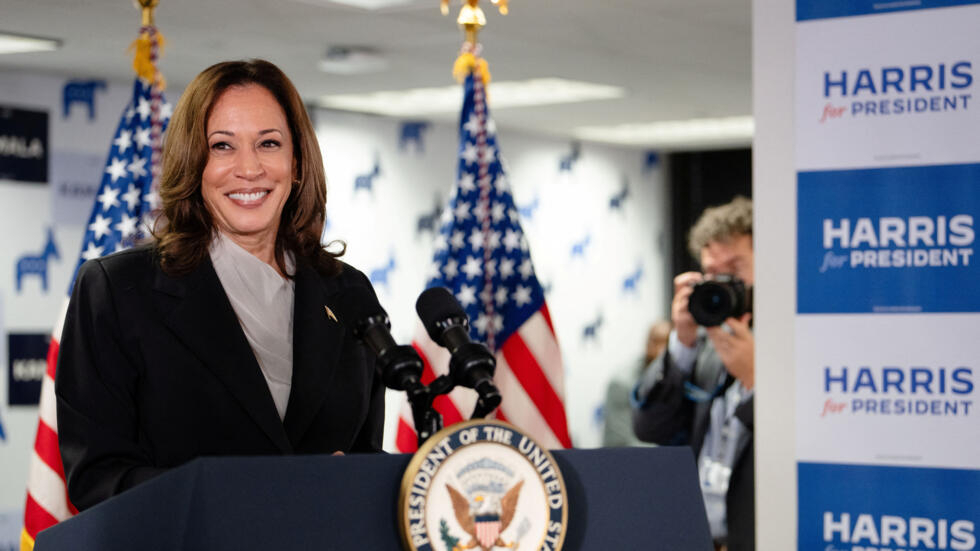
Kamala Harris, who became the first female Vice President of the United States, has permanently affected the country’s political scene. With her unconventional upbringing and progressive position, what she stands for has sparked both hope and criticism. Her legislative initiatives impact every area, from healthcare to technology. But what does this mean for America’s industries? Let’s look at the impact of Kamala Harris’ policies on numerous sectors, and how her initiatives are transforming our economic fabric.
The Healthcare Industry: A Prescription for Change
Kamala Harris’ policies have been nothing short of transformative for the healthcare industry. A staunch advocate for affordable healthcare, she has pushed for reforms that aim to make medical services more accessible and equitable. But how are these policies playing out?
Expansion of Medicare: Medicare for All
One of the most notable policies that Harris champions is the expansion of Medicare. This proposal aims to provide all encompassing healthcare coverage, eliminating the need for private insurance in the country for consumers.
Impact on Insurers
The decision to implement this change will likely have a substantial impact on insurance companies, potentially leading to a sharp decline in their overall market presence. This shift could result in significant challenges for these companies as they navigate the changing landscape and face the prospect of losing a sizable portion of their customer base.
Healthcare Providers
On the other hand, hospitals and clinics might witness an increase in patient numbers due to the broader coverage. However, it comes with the challenge of managing higher patient loads.
Drug Price Regulations: Price Caps
Harris has opposed healthcare industry consolidation over concerns bigger companies would lead to higher prices for consumers and seek consumer relief from anti-competitive pricing.
Pharmaceutical Industry
In the pharmaceutical sector, companies are now faced with the challenge of efficiently managing tighter profit margins while also dealing with heightened oversight regarding their pricing strategies. This involves carefully analyzing cost structures, exploring new revenue streams, and identifying ways to enhance operational efficiency to withstand the evolving market dynamics.
Technology Sector: Navigating New Norms
Kamala Harris’ policies also extend to the technology sector, an industry that’s always in flux. Therefore, her approach aims to foster innovation while addressing critical issues like data privacy and digital equity.
Data Privacy: Regulations
She has always been vocal about the need for stringent data privacy laws for citizens. Moreover, her policies emphasize protecting consumer data from misuse by some big tech companies.
Tech Giants
For companies like Facebook and Google, this means adapting to new compliance requirements and potentially restructuring their data management practices.
Digital Equity: Broadband Access
One of the key projects she ardently champions involves significantly enhancing broadband access in several underprivileged and remote regions that have historically lacked adequate technological infrastructure, potentially enabling adults to access gaming platforms like 22Bet.
22Bet login presents more than 3000 games on its website, making it the largest in the overall gambling industry. Some casinos may promote a selection of slots, table games and other forms of entertainment. In the slot machines category, you can sort games by date, preference, popularity and jackpot. Apart from this, players can also choose the games according to the software provider.
Economic Opportunities
By bridging the digital divide, this policy aims to create more economic opportunities, especially in rural areas, fostering a more inclusive tech environment.
Environmental Policies: Green Dreams or Economic Nightmares?
Harris’ environmental policies aim to address climate change head-on, but their implications for various industries are profound.
Investment in Clean Energy
Harris is a strong supporter of increasing funding for renewable energy projects, particularly focusing on expanding wind and solar infrastructure to pave the way for a more sustainable and greener future.
Energy Sector Shift
This transition poses challenges for traditional energy sectors like oil and gas but opens new avenues for companies in the renewable space.
Stricter Standards
Her policies advocate for the implementation of more rigorous emission standards, encouraging industries to embrace and invest in environmentally friendly technologies for a sustainable future.
Industrial Impact
Manufacturing industries must invest in greener technologies, which could lead to higher short-term costs but potentially significant long-term savings and environmental benefits.
Education: Rewriting the Future
Kamala Harris has also turned her attention to education, with policies designed to make quality education more accessible and equitable.
Increased Funding
Harris passionately advocates for boosting federal funding to public schools, with a particular focus on enhancing financial support in disadvantaged low-income communities which are often underserved.
Educational Disparities
This policy is specifically designed to address and diminish the existing educational disparities by allocating additional resources to underfunded schools, ultimately aiming to create a more level playing field for all students.
Higher Education: Debt-Free College
She proposes initiatives for debt-free college, making higher education accessible to a broader demographic.
Economic Impact
This could alleviate the student debt crisis, potentially leading to a more educated workforce and stimulating economic growth.
Financial Sector: Balancing the Scales
Harris’ financial policies focus on creating a more equitable and comfortable economic environment, impacting banks, financial institutions, and consumers alike.
Wall Street Regulations
· Stricter Oversight
Harris advocates for stricter oversight of Wall Street, aiming to prevent financial crises and protect consumers.
· Banking Impact
This could lead to more stringent compliance requirements for banks, potentially curbing risky financial behaviour’s and She discussed robo-signing and foreclosure misconduct allegations with major banks and mortgage servicers, accusing them of having employees sign documents without verifying the information.
Consumer Protection
· Predatory Lending
Kamala Harris advocates for tougher consumer protection regulations to combat unscrupulous lending practices.
· Financial Well-being
For consumers, having access to safer borrowing options not only protects them from financial risks but also empowers them to make informed decisions that may lead to reduced debt levels in the long run.
Conclusion
With a goal firmly set on improving the state of the American economy, Kamala Harris’s initiatives are bringing about profound changes in a variety of industries. Her bold plans, which integrate technology, healthcare, education, and the environment, are carefully designed to promote an ecologically responsible and inclusive future. While some industries struggle to adjust to these radical shifts, others are embracing their newfound opportunities for growth and innovation. The more we examine the nuances of her ideas, the more obvious it is that Kamala Harris has a significant and wide-ranging impact on these sectors, portending a dynamic, flexible, and rapidly expanding economy in the future.
FAQs
How do Kamala Harris’ policies affect small businesses?
Harris’ policies aim to support small businesses through various initiatives, such as easier access to loans and grants, tax relief, and efforts to reduce healthcare costs. These policies are intended to foster a more supportive environment for small business growth and their sustainability.
What impact do her environmental policies have on traditional energy sectors?
Traditional energy sectors, like oil and gas, may face challenges due to Harris’ push for renewable energy investments and stricter emission standards. This shift requires these sectors to innovate and adapt to a greener economy, potentially leading to significant industry changes.
How do Kamala Harris’ educational policies benefit low-income communities?
Her educational policies, which include greater financing for public schools and debt-free college programmes, are intended to redress inequities in educational quality and access. These approaches attempt to provide possibilities for kids in low-income neighbourhoods, therefore levelling the playing field.
What are the potential long-term effects of her healthcare policies?
The long-term effects of Harris’ healthcare policies could include wide access to medical services, a reduction prescription on drug prices, and potentially a more equitable and accessible healthcare system. However, these changes may also lead to significant change and shifts in the insurance and pharmaceutical industries.
How does Harris’ stance on data privacy affect tech companies?
Tech companies may need to implement stricter data management practices and compliance measures due to Harris’ emphasis on consumer data protection. This could lead to changes in how companies collect, store, and use data, potentially affecting their business models.











